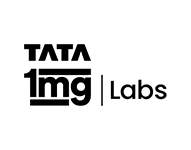FBS (Fasting Blood Sugar)
Understanding FBS (Fasting Blood Sugar)
What is FBS (Fasting Blood Sugar)?
An FBS (Fasting Blood Sugar) test measures the glucose (sugar) level in the blood after overnight fasting. This test is done when a person experiences symptoms of high or low blood sugar levels or to assess a person’s risk for diabetes. It is often done as part of a routine health checkup.
Glucose is the primary energy source for the body. Carbohydrates in your food are broken down into glucose that is then absorbed into the bloodstream and transported to your cells for energy. Insulin, produced by the pancreas, regulates the blood glucose level in the body. A lack of insulin or its reduced effectiveness can result in high blood glucose levels.
High blood glucose levels can be a sign of diabetes or prediabetes (a condition where a person has high blood glucose levels but not yet at a level that qualifies as diabetes). Early detection and treatment of diabetes are essential to prevent complications such as heart disease, kidney damage, and nerve damage. An FBS test helps screen for prediabetes and diabetes and checks the effectiveness of medications or lifestyle changes for the diagnosed people.
Fasting for at least 8-12 hours is recommended before undergoing an FBS test. Do not eat or drink anything other than water during the fasting period. It is also important to inform your doctor about any medicines you are taking, as some of them may affect your blood glucose levels and need to be adjusted or temporarily discontinued before the test.
Test result ranges are approximate and may differ slightly between labs depending on the methodology and laboratory guidelines. Talk to your doctor about your specific test results. The results will help them determine your medical condition, make recommendations for lifestyle modifications such as diet and exercise, determine whether or not medication will be required to manage your condition and formulate your overall treatment plan.
What is FBS (Fasting Blood Sugar) used for?
An FBS (Fasting Blood Sugar) test is done:
- As part of routine health checkups to measure glucose levels in the blood.
- If you have symptoms of altered blood glucose levels, such as weight gain, weight loss, blurred vision, frequent urge to urinate, or confusion.
- For assessing the risk for diabetes and prediabetes and for monitoring diabetes treatment.
- To screen pregnant women for gestational diabetes.
What does FBS (Fasting Blood Sugar) measure?
A fasting blood sugar test measures the glucose level in the body under overnight fasting conditions. Glucose serves as the body's energy currency and is broken down through metabolism to produce energy. Hormones and enzymes produced by the liver and pancreas control this process. The hormone insulin, produced by the pancreas, regulates blood glucose levels. When these levels are high, such as after a meal, insulin is secreted to transport glucose into cells for energy production. Elevated glucose levels in the body after fasting may indicate a risk of developing prediabetes or diabetes, which can be of two types- Type 1, caused by little or no insulin production, and Type 2, caused by insulin resistance or decreased insulin production.
Interpreting FBS (Fasting Blood Sugar) results
Interpretations
Normal fasting glucose range: 70 to 99 mg/dL (3.9 to 5.5mmol/L)
Prediabetes: 99 to 126 mg/dL (5.5mmol/L to 7.0mmol/L)
Diabetes: Higher than 126 mg/dL (7.0mmol/L) in multiple subsequent tests
Answers to Patient Concerns & Frequently Asked Questions (FAQs) about FBS (Fasting Blood Sugar)
Frequently Asked Questions about FBS (Fasting Blood Sugar)
Q. What is the Fasting Blood Sugar test?
Q. Why is an FBS test important?
Q. How do I prepare for an FBS test?
Q. What are the risks associated with an FBS test?
Q. Can I take the Fasting Blood Glucose test during pregnancy?
Q. What is hypoglycemia?
Q. What are the symptoms of hypoglycemia?
Q. What is hyperglycemia?
Q. What are the symptoms of hyperglycemia?
Q. What are the risk factors for diabetes?
Q. Can factors other than hormones and diet affect my blood sugar levels?
Q. What are the common complications of diabetes?
Q. What other tests can be prescribed by the doctor in case the result of the Fasting Blood Sugar test is not normal?
Book a FBS (Fasting Blood Sugar) test at home near me





Other tests









